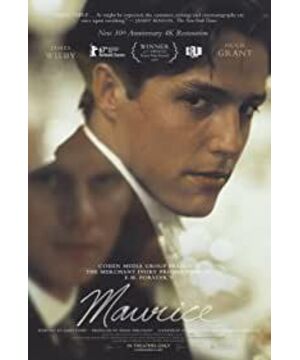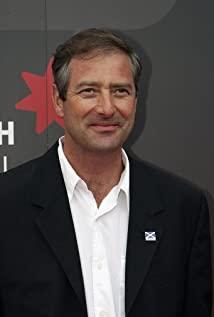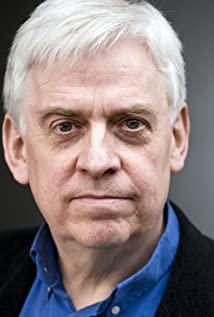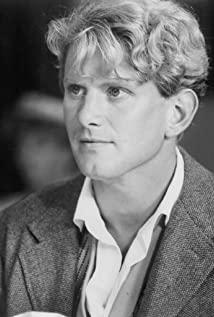. -------------------------------------------------- --------I
have to admit that this film was originally aimed at the handsome appearance of the actor and the subject of homosexuality, so I never thought it would bring me so many touches that I watched it Over and over again, I also found deleted fragments and original works.
I always think Clive is hypocritical and selfish. He did enlighten Maurice to a certain extent, and should be regarded as Maurice's first love, but everyone overestimated his influence on Maurice. Maurice was not the one who broke the bend. It is mentioned in both the film and the original work that Maurice had what he called "an obscene fantasy" in public school. Although Maurice's school spirit is very strict, due to the scandal in the previous year, the boys were all caught It's hard to control. Maurice was originally a homosexual. What Clive gave him was just a thought, making Maurice think that he could combine with a loved one, and carry him together.
I don't doubt that Clive loves Maurice, but I still think he is selfish and hypocritical. The love style he is obsessed with—many people call it platonic love, but I disagree. His love is just an illusion of spiritual love. When this illusion was shattered in real life, he was also willing to have sex with this unreasonable society. He wanted to get love, so he went to pursue Maurice, but he didn't dare to bear the consequences of this forbidden love, so he refused to be intimate with Maurice. Listen to what he said, "I'm afraid this will ruin us." But Maurice was not afraid. Clive also said, "Body, mind, and soul, I don't think women can understand." But when Maurice was sad for him, he described union with women as "the happiest thing in the world, maybe the only thing." Happy things." And told Maurice triumphantly. Although he thought Maurice was in love with women at the time, his inconsistent form really disgusted me. He continued to persuade Maurice to accept women, implying how abnormal Maurice’s homosexual behavior was, and he didn’t want to think about who tempted Maurice to make him pursue this unspeakable love without turning back. In addition to causing Maurice to lose her lover, it also caused Maurice. It is simply persecution in disguised form because of the tremendous mental pressure.
The original book did not describe how Clive became straight, as if he was completely cut off from his status as a "Hellenic admirer" after a serious illness. I don't know if it is because the original work is Maurice POV. The adaptation of the film is reasonable. I can't criticize him for his cowardice before the severe punishment, but because of his cowardice, for no reason to ask Maurice to bear the emotional burden, it makes me unbearable. If he really wants to escape the relationship, he should confess to Maurice instead of leaving irresponsibly.
As for Alec, the author never described him as a perfect person. Alec has the inferior nature of the lower class. He despises etiquette and is clever, but it is these vulgarities that make him particularly cute. Clive said he was a little clever, and hinted that he was not as honest as the gentlemen. It should be said that Clive's words are fair. If the other party is not Maurice, I think Alec might indeed want to extortion.
But that is Maurice!
In the original book, the day Maurice left Clive's home to go to London, it was raining, and Maurice was rude to Alec for five shillings. But on Maurice's way back to the city, Alec kept chasing behind his car and walking all the way. It was still raining that day, and the road was muddy and difficult to navigate, but he just chased it all the way, Maurice looked back and saw the brown eyes gleaming in the rain and fog through the glass window.
From there I have no doubt about Alec's feelings for Maurice. According to Alec, he fell in love with Maurice very early, and the servants also knew about the relationship between Maurice and Clive. He always wanted to spend the night with this gentleman. When Maurice sent the invitation, it was when he was mentally tortured in Clive's "Women's Extraordinary" declaration. It was when he was the most empty, lonely, and most vulnerable. Maurice just yelled "Come on" to the void, not clearly aware of who he was expecting. And Alec came, he had been waiting under his window sill, and he came when he heard his call. You can say that Alec took advantage of the emptiness to come in, shameless, but he was that kind of person, with a kind of moth-to-fire fascination.
As for the extortion period, I always feel that Maurice's view of Alec is unfair. Perhaps due to differences in identity, Maurice had a prejudice against Alec from the beginning, and felt that the lower-level people were indecent and mean. And when Alec appeared with the letter and threatened him with those words, his worries came true. But he soon discovered that Alec was just a bluff, and there was no brother waiting outside, and he hadn't told anyone that what he asked for was simple, but Maurice went to the boathouse to spend the night with him. He wanted to behave fiercely, telling bluffingly, but his pitiful eyes couldn't hide his guilty conscience.
Maurice was afraid of Alec, fearing that he would really do something extraordinary to ruin his social status. Maurice called this day "the most dangerous day in his life". And Alec was also afraid of Maurice, because of the disparity in identity, it was even easier for Maurice to destroy him. But this stupid little thing still came.
This was the first time he came to London, and he dared not let his family know that everything was for Maurice. The weather in London was as gloomy as it always was, with drizzle. He rashly broke into Maurice's place of work, changed decent clothes on purpose, and looked curiously and fearfully at this place that did not belong to him.
In the British Museum, they did not agree on the surface, but their actions were surprisingly consistent, and the atmosphere was even subtle and sweet. The author also said that the more he writes, the more vivid Alec's character will be, and the more he loves this character, I think so.
Many people think that Maurice and Alec are not true love, Maurice just found someone to spend the rest of his life with him. Regardless of their future problems, the author also avoids discussing these problems because the timeline will enter a world war later (he once imagined letting them work as loggers in the forest to feed themselves). If it is not true love, I can hardly believe that someone would give up their future just to be with someone. I asked myself I couldn't do it. Even if it is true love, I may not be able to do it.
In the end, Maurice went to Clive and told Clive that he was with his hunting guard. In that paragraph, Maurice felt that he should make it clear to Clive that he had an explanation. From then on, he and Clive have nothing to do with each other, and there is no affair anymore. This is Maurice's performance as a gentleman, not like Clive, who left Maurice silently without a reasonable explanation, and even the eighth one notified Maurice that he was going to get married.
"I don't want to be the captain, and arrange for me to play in the eighth game." Maurice was obviously brooding about it. Not only is he no longer his lover, he is no longer the most important person in his mind.
Some people think that Clive and Maurice are a match made in heaven. They are both Cambridge students, gentlemen, with full of knowledge and elegant manners, but I want to say that Clive is not worthy of Mauric. Maurice is a true temperament, who can put aside everything to pursue love, whether it is spirit or flesh, he is not afraid of everything outside of him, and Alec is the same. But Clive is different. So even if the social atmosphere at the time was not so sinister, I deeply feel that Clive and Maurice are not a good match. Although Alec was humble, he could have gone to South America to start a wonderful life, not to mention that unlike Clive and Maurice, he was originally bisexual (the plot of his flirting with two maids under the grapevine was deleted. ), he can marry a wife and have children to enjoy the family, and will not be as painful as the unwilling Clive, but he stayed for Maurice with a word.
Just because in the small and rudimentary hotel room, Maurice told him that we would never meet.
Later, I was fortunate to see the end of Foster’s never official publication. In the jungle, Ada met Maurice and Alec who depended on each other to cut logs. Maurice has turned black and strong, and is no longer the beautiful young man, and many people will be heartbroken by it. But Maurice is happy. All he wants is to be with the people he loves. For this reason, he doesn't hesitate to leave his family home. And Clive will never give it all.
Clive said to Maurice that if you leave me behind, the rest of my life will be spent in half asleep and half awake. As a result, he left Maurice and left Maurice, the rest of his life can only be spent in a muddle. He couldn't recognize the love in his heart, and then lost him and couldn't blame others.
I really like the way the film ends. Maurice says to say goodbye to Clive before going to Alec, instead of turning it upside down in the original book. Finally, in the gloomy boathouse, Alec and Maurice hugged tightly, telling him in his ear, "Everything is over." The
end is suffering, and what they are about to usher in is a new life.
View more about Maurice reviews











